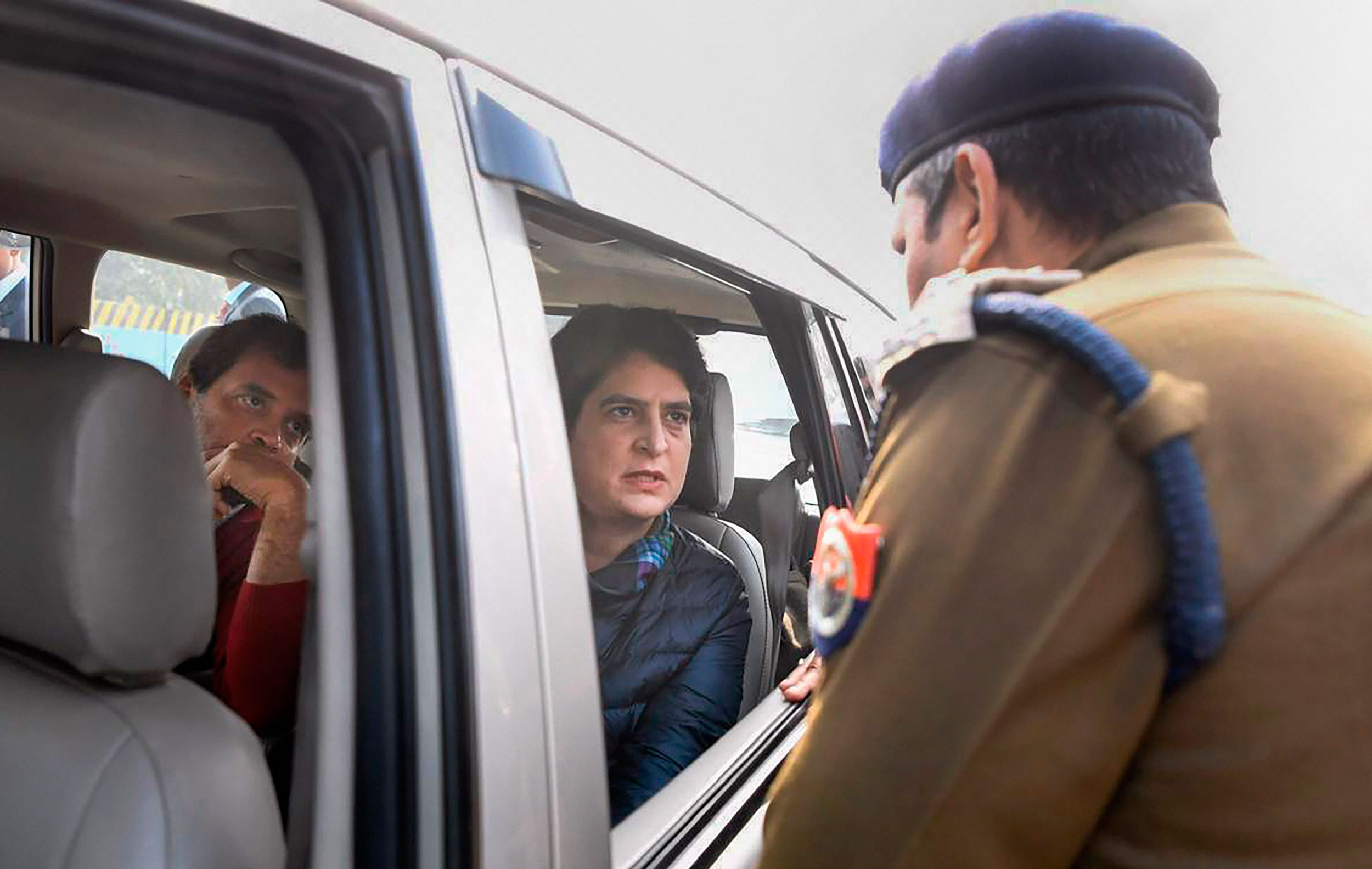The Congress has emphasised that the UPA government had shelved a pilot project on citizenship determination that the Atal Bihari Vajpayee administration had christened the “National Population Register” and initiated in 2003, replacing it with its own NPR that merely lists the “usual residents” of specific localities.
The Congress has been keen to underline the differences between the UPA government’s NPR and the one the Narendra Modi government is gearing to implement, and which the party fears is an attempt to bring in the National Register of Citizens through the backdoor.
Congress leaders P. Chidambaram and Ajay Maken on Thursday asked the government to declare it was ready to follow the NPR’s existing format if indeed its objective was to update the UPA-initiated population register.
On Wednesday, the Congress had said the design of the current NPR appeared to differ from that of the UPA’s, and contained a series of additional questions that suggested the objective was to determine the respondents’ citizenship.
The Union cabinet had suddenly approved the NPR amid widespread protests against the NRC, with home minister Amit Shah claiming the government was merely continuing an old scheme started by the Congress. Videos of the launch of the NPR by then home minister Chidambaram have been circulated widely on social media.
Chidambaram countered the campaign with a series of tweets on Thursday.
“I am happy that the BJP has released a video clip of the launch of NPR in 2010. Please listen to the video. We were enumerating the ‘usual residents’ of the country. The emphasis is on residency, not citizenship. Every usual resident was to be enumerated irrespective of his or her religion or place of birth,” he posted.
“The NPR aided the preparation of the Census of 2011. There was no mention of NRC. The BJP-led government has a larger and more sinister agenda and that is why the NPR approved by them yesterday is very dangerous and different in terms of the text as well as the context of NPR 2010.
“If the BJP’s motives are bona fide, let the government unconditionally state that they support the NPR form and design of 2010 and have no intention of linking it to the controversial NRC.”
Then junior home minister Ajay Maken, who had overseen the NPR project in 2010-11, told a news conference: “The pilot project for the NPR was rolled out in November 2003 by the Vajpayee government. A population of around 31 lakh people spread over 11 states and one Union Territory was chosen for the pilot project. When the Congress-led government came (to power) in 2004, this project was on. In October 2006, a committee of secretaries reported that the process was cumbersome and impractical. The EGoM (empowered group of ministers) decided to shelve the project.”
Maken added: “Till then, identity cards for only 12 lakh people had been made. So the citizenship determination project was stopped. The EGoM said, ‘The experience of the pilot project has shown that the determination of citizenship is an involved and complicated matter and that the creation of the NPR with a single reference date would be more feasible.’ The NPR and the NRC are fundamentally different. We started the NPR to enumerate usual residents. All 1.2 billion people were to get I-cards under that scheme.”
Maken then stressed the differences between the UPA’s version of the NPR and the one the Modi government wants to implement.
“The Modi government never talked of usual residents. (A usual resident is a person living at a particular place for six months.) They never talked (earlier) of the NPR; (they) always talked of the NRC,” he said.
“That’s why they changed the format and design and are asking for personal details like mobile number, Aadhaar, driving licence number. Why are the dates and places of one’s parents’ birth being asked? They are saying the disclosure is voluntary. How can you say ‘not available’ in the form if they ask for mobile number or Aadhaar? On that basis, you will be placed under the doubtful (citizen) category.”
The Congress has decided to oppose the new NPR and is working out the schedule for a nationwide agitation on December 28.
While Rahul Gandhi may travel to Guwahati to lead a public march, Priyanka Gandhi Vadra will attend a rally in Lucknow. All the other senior Congress leaders will participate in similar rallies across the country on December 28, the party’s foundation day.
Rahul on Thursday targeted Modi over his claim that there were no detention centres in the country.
He posted on Twitter a BBC video on a detention centre in Assam and added this message: “The RSS Prime Minister lies to Bharat Mata.”











